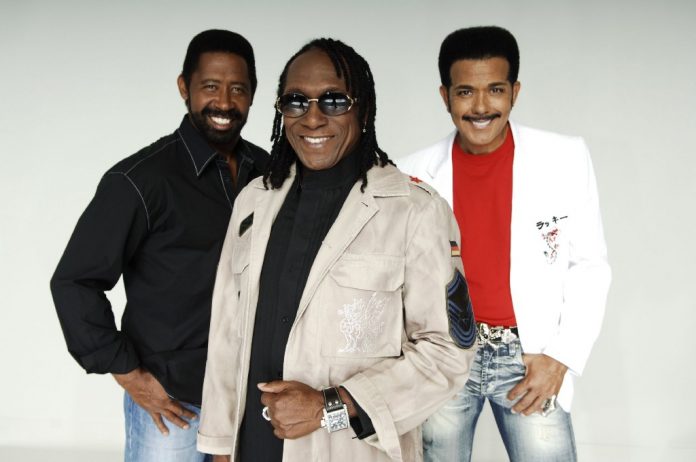When Lionel Richie left the Commodores in 1983, many fans wondered where that would leave the group. Fortunately, they didn’t have to wonder for long.
In 1984, after deciding to re-establish the co-lead vocal formula that had catapulted them to the top of the charts in the past, The Commodores interviewed more than 50 candidates before finally deciding on J.D. Nicholas, who had been the lead vocalist for Heat Wave. The match was perfect, and the subsequent success of Night Shift proved it.
“Although we had had hits before, we won our first Grammy with that song in 1986 — without Richie,” said William King, one of the founders of the original group. Along with Walter Orange, King and Nicholas form the Commodores of today.
The group will perform their hits at the Tropicana Showroom in Atlantic City on Saturday, Sept. 24.
The original group was formed in 1968 when the members were in college at Tuskegee Institute.
“It happened in our freshman year when we discovered each one of us played an instrument. That’s when we decided to get together and play,” King said. “It wasn’t about rehearsing or getting famous. It was just about having fun. All we wanted to do was play music and meet girls.”
That happened. And what also happened was that the group made great music together and went on to bigger and better things. Known as “smart guys,” the Commodores were smart enough to open for the Jackson 5, to be discovered by Berry Gordy in the process, and to sell more than 60 million records for Motown.
In fact, they were Motown’s largest-selling act for two decades, racking up a string of hits that included Machine Gun; Brick House; Easy; Three Times a Lady and others.
Later, the group struck out on its own, and set out to take control of their career in an unprecedented fashion. Their first step was to regain control of their material. Motown’s refusal to grant master use licenses to them for their planned greatest-hits CDs actually turned out for the best.
In late 1991, King, Orange and Nicholas began the mammoth undertaking of creating new digital records of the Commodores’ classic hits. Their project worked and was, said King, “a blessing in disguise.”
Today, the Commodores are busier than ever. And their success, said King, is because of their music and the show itself.
“Our music has made such a difference in so many lives, and our fans let us know that,” he said. “They tell us they met their wives with our music playing in the background, got married by our music, even conceived their children. And, as strange as it may seem, some people ask us for copies of our music to die by. They find it so soothing and so meaningful.”
The Commodores are currently working on new material for their next CD. King explained that they push aside any ego problems and arrive at the selection process democratically.
“It’s really simple,” he said. “We take a vote. And once the die is cast, everybody jumps on the bandwagon and pushes it down the road. Even if it was something we didn’t want to do, or something we didn’t believe in, in the end, everybody gets on board.”
And in the end, he concluded, “one of the most important things about us is that we treat each other like gentlemen.”
“We’re old enough to know that show business is divided into two parts: There’s the show and then there’s the business. We try to take care of both sides.” ••
For times and ticket information, call 1–800–745–3000.





